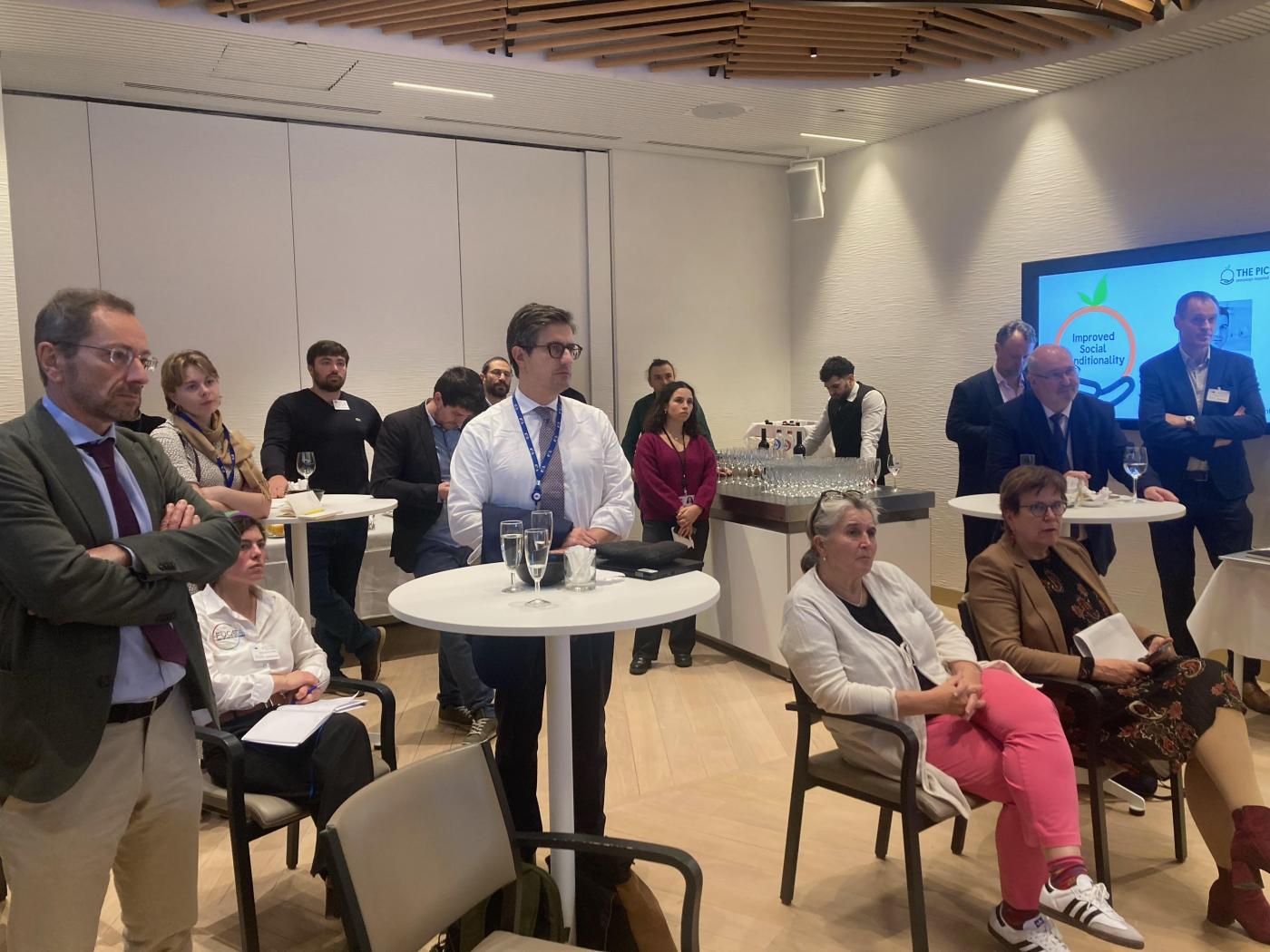The EU’s push for economic deregulation threatens to increase the suffering of millions of people at the beginning of European supply chains. This conclusion is the result of an expert discussion in the EU Parliament, in which MEPs, EU Commission representatives, civil society initiatives, and the research group “Feeding Europe, Failing Workers” participated.
Based on the documentary film “The Pickers” (supported by Journalismfund Europe’s Modern Slavery Unveiled grant programme), which sheds lights on the precarious situation of harvest workers in Europe, the approximately 40 participants discussed the need for robust supply chain legislation, work visas for migrants, and the price pressure exerted by major retailers. The event was hosted by Social Democratic MEPs Maria Noichl and Gabriele Bischoff.
At the event, journalist Silvia Lazzaris presented the work of the research group to policymakers. Consisting of eight international journalists, the group was able to prove, using dozens of examples from five European countries, that the EU subsidises agricultural businesses to the tune of millions, even when they have been convicted of labour law violations. In some cases, farmers continue to receive subsidies while in prison.
The research also shows that a regulation within the Common Agricultural Policy, intended to prevent precisely this, has so far failed. Penalties are low, and the policy is not being implemented adequately in many countries. Reform of the so-called social conditionality is therefore urgently needed.
The timing is favourable, as the EU is currently discussing the Common Agricultural Policy for the period from 2028 to 2034. Maria Noichl, a Member of Parliament who has been campaigning for robust social conditionality for years, reacted with outrage to the research presented at the event. “The money from Europe is taxpayers' money,” she said. “It does not belong to the farmers.” This is why it should benefit everyone, for instance through improved animal welfare, environmental protection or fair working conditions. Under the Common Agricultural Policy, around a quarter of the total EU budget goes to farmers every year.
Ivan Ivanov, representing the trade union federation EFFAT, outlined the union's decades-long struggle for decent working conditions within the Common Agricultural Policy. He called for social conditionality to be expanded. For example, violations of the minimum wage should be included, and penalties for farmers should be increased. Currently, these penalties amount to just three to five percent of the subsidy paid. Experts say that this has little deterrent effect.
Mihail Dumitru, Deputy Director-General for Agriculture at the EU Commission, expressed his commitment to social conditionality. “We have decided to keep the rules in our proposal, despite pressure to abolish them,” he said at the event. Like many business associations, farmers' associations in Brussels are campaigning for a reduction in bureaucracy – and have also spoken out in favour of abolishing social conditionality.
Several participants emphasised the importance of the group's research, which uses concrete examples from the field to highlight the urgency of the issue to decision-makers. In the coming months, the Parliament, Council and Commission will negotiate the future of the Common Agricultural Policy, including the role of the labour rights of around two million migrant harvest workers.
Photos by Jonas Seufert
